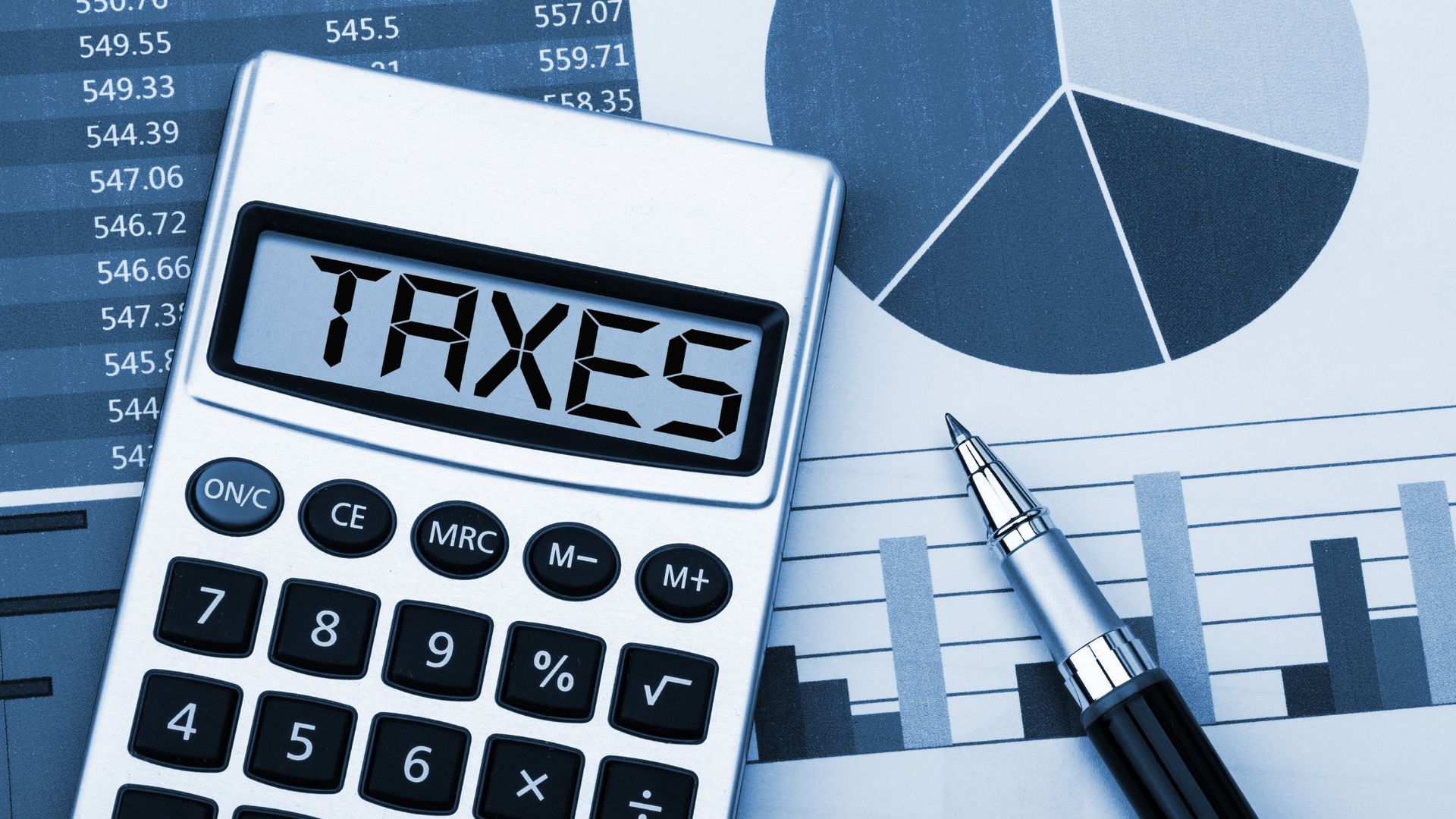Taxes - Sole Trader vs. Limited Company
What Are Tax Responsibilities For Sole Trader vs Limited Company?
When choosing between operating as a sole trader or setting up a limited company, tax efficiency, responsibility, and admin burden are key factors. Sole traders enjoy simplicity and fewer filing obligations but may face higher taxes as income increases. Limited companies involve more complex reporting and setup, yet they provide greater flexibility and opportunities for tax planning through salary/dividend strategies and expense deductions. For contractors earning over £50,000 annually, going limited is often more financially advantageous.
At Go Limited, our experts understand the ins and outs of keeping on top of tax, and we’re here to help whether you’re a sole trader or a limited company. Below, we’ve compared the responsibilities of each, helping you to decide which route is best for you.

What are Tax Responsibilities as a Sole Trader?
There’s a lot of misinformation out there about the tax responsibilities of a sole trader, leading many to believe it’s more complex than it is. While organisation and record-keeping are required, most sole traders find managing the financial side relatively straightforward. You’re taxed on your business profits, making your obligations simple.
You must submit a self-assessment tax return annually, filed with HMRC by 31 January following the end of the tax year.
The tax owed is based on your earnings:
- 20% on profits above the personal allowance of £12,570
- 40% for higher earners
National Insurance contributions (NICs) are also based on earnings:
- 6% for earnings between £12,570 and £50,269
- An additional 2% for earnings over £50,270
VAT:
- If your turnover exceeds £90,000 annually, you must register for VAT
Paying Tax as a Sole Trader
If you are set up as a sole trader in the UK, your tax obligations are based on your personal earnings, which can make it difficult to separate your personal and business finances. You need to pay income tax on all of your profiles, as well as National Insurance, which means that the percentage of your take-home pay lost increases as you earn more. If you expect to make substantial profits, being a sole trader can become less tax-efficient compared to a limited company. Though your tax responsibilities as a sole trader are simpler than a limited company’s, your profits are fully taxable, which leaves less room for tax-saving strategies.

Is Tax a Good Reason for Setting Up Your Own Limited Company?
There are a lot of reasons to set up a limited company, but limited company tax is one of the most common driving forces. More often than not, a limited company for contractors makes sense in regards to becoming more tax-efficient, especially if you’re earning over £50,000 annually. By making your company limited, you can pay yourself a combination of salary and dividends, which is more tax-efficient than your income tax obligations as a sole trader. There are a lot of limited company benefits, but the fact that the company structure offers opportunities to claim additional expenses and reduce taxable profits is certainly one of the most important. Of course, this does come with additional administrative and organisational responsibilities, but the majority of accountants for contractors agree that going limited is usually the right move.
What Are Limited Company Tax Responsibilities?
If you set up a limited company for contracting, your tax responsibilities are slightly different. It’s one of the biggest changes when transitioning from being a sole trader to having a limited company. When you’re contracting through a limited company, your tax obligations are more complex. But, they do also offer greater flexibility.
If you’re contracting through a limited company, you need to pay corporation tax. This is paid on all business profits, after you have deducted any allowable expenses, at a rate of 25% for profits over £50,000. You’ll also need to pay yourself a salary, which you then need to pay personal income tax and National Insurance on. A lot of contractors choose to pay themselves a combination of salary and dividends, as dividends are taxed at a lower rate. If, as a sole trader, you are VAT registered, you need to pay VAT. This is also the case if you’re contracting through a limited company and your annual turnover is 90,000 or more.
Limited Company Tax Reporting
One of the biggest burdens of limited company tax is the annual reporting that you’re responsible for. You can’t simply submit your turnover information to HMRC and hope for the best, everything needs to be reported, tracked and proved. You need to keep your accounts up to date with Companies House and submit annual accounts, making sure everything is accurate. You also need to submit a corporation tax return with HMRC and pay the tax due.
One of the downsides of setting up a limited company is the task of maintaining accurate financial records throughout the year, ensuring everything is organised would HMRC want to investigate. This is why a lot of people contracting through a limited company enlist the help of accountants for contractors, who understand the relevant tax requirements and responsibilities.

Tax Benefits Working Through a Limited Company
There are a lot of limited company benefits when it comes to tax, which is why setting up a limited company is a route a lot of sole traders end up taking.
Tax-Efficient Income
When you have a limited company, you can pay yourself a low salary to stay as close to the personal allowance tax threshold as possible, then take the rest in dividends which have a lower tax rate. This reduces your tax liabilities and maximises your limited company take-home pay.
Tax Deductible Expenses
As a limited company contractor, you can claim a whole host of expenses. Allowance expenses are tax deductible, reducing your tax bill and making the most of the money you’ve earned. You can claim for expenses such as office costs, equipment and professional fees, including the cost of hiring accountants for contractors.
Reduced NICs
You have to pay National Insurance on your salary, but you don’t have to pay any National Insurance on any dividends that you’re paid. By paying yourself in a combination of salary and dividends, you reduce your NICs and save money.
Retain Profits in the Company
One of the biggest limited company tax benefits is that profits not immediately needed, including the money that you’ve saved by being tax-efficient, can stay within the business. This means they can be used for future investments, which are then taxed at the lower corporation tax rate.
How to Reduce Limited Company Tax
If you’re operating through a limited company, there are a handful of ways to optimise tax efficiency. For example, you can claim allowable expenses, such as travel, training and professional services. The cost of these can be deducted from your profits, giving you a smaller amount to be taxed on. You can also reduce your limited company tax by upping your pension contributions, as employer contributions are tax-deductible and will reduce your taxable profits.
Sole Trader vs. Limited Company Tax: Which is Right for You?
It’s hard to know whether being a sole trader or limited company is best for you, as there are a fair few things to consider. But, when it comes to tax, it’s likely that going limited is advantageous. Being a sole trader is ideal for those starting out or earning below £50,000 annually. This is because your profits aren’t high enough to have any major tax implications and your tax responsibilities are simpler. However, your take-home pay can be lower due to higher tax rates on profits.
If you’re contracting through a limited company and earning a higher income, you’re likely to benefit from going limited, as long as you take advantage of tax-efficient income strategies. It’s important to remember that there are more administrative responsibilities with having a limited company and accounting fees are higher, so finding the balance is key.
Do You Pay Less Tax as a Sole Trader or Limited Company?
Usually, limited company take-home pay is higher if you have substantial profits, compared to operating as a sole trader. By using strategies like taking a lower salary, paying yourself in dividends, and claiming allowable expenses, you can reduce your overall tax liability. Sole trader tax, though simpler to manage, comes with higher tax rates on profits.

FAQ
What’s the legal difference between a sole trader and a limited company?
A sole trader and their business are legally the same, meaning personal liability for debts. A limited company is a separate legal entity, which protects personal assets unless you’ve given a personal guarantee.
Which business structure is easier to set up?
A sole trader setup is faster—just register for Self Assessment with HMRC. Setting up a limited company requires Companies House registration, director appointments, and more paperwork.
How do taxes differ between the two?
Sole traders pay Income Tax and Class 2 & 4 NICs via Self Assessment. Limited companies pay Corporation Tax on profits, plus the owner pays tax on salary (Income Tax + NICs) and dividends (Dividend Tax).
Which is more tax-efficient?
If you earn under £30,000, a sole trader setup may be more straightforward. Once your profits exceed £35,000–£50,000, a limited company often offers better tax savings through income splitting and deductible expenses.
Who is personally liable for business debts?
Sole traders are personally liable. In a limited company, liability is usually limited to your investment in the business.
Which structure has more admin requirements?
Limited companies must handle more admin, including filing annual accounts, PAYE, Corporation Tax returns, and a Confirmation Statement. Sole traders typically only need to file a Self Assessment each year.
Do I need an accountant for both?
Not necessarily. Many sole traders use DIY accounting tools. Limited companies benefit from professional support to stay compliant and maximise deductions.
Can both sole traders and limited companies register for VAT?
Yes. VAT registration is mandatory once turnover exceeds £90,000. You can also register voluntarily below that threshold if it suits your business.
Which is better for business credibility?
Limited companies often appear more established and professional—an advantage when working with larger clients or agencies.
Can I switch from sole trader to limited company?
Yes. Many businesses start as sole traders and incorporate as they grow. The transition involves some setup but is manageable with support.
Do sole traders need to register a business name?
No, you can trade under your own name. If you use a business name, ensure it’s not already in use or trademarked.
How do I choose the right structure for my business?
Consider income, admin preferences, legal risk tolerance, and growth plans. If unsure, speak with an accountant or adviser.

Selecting the right business structure is a key decision that affects your tax, admin responsibilities, and growth potential. Sole traders enjoy simplicity and control, making it a practical option for those starting out or earning modest income. For higher-earning contractors, limited companies offer a more tax-efficient structure with potential for reinvestment and financial separation.
At Go Limited, we’re here to help you evaluate your options with expert advice so you can build a sustainable and tax-smart business.
Please note: Any rates and thresholds mentioned in this article are correct at the time of publishing and may be subject to change.











